Longtime Brevard historian, popular FLORIDA TODAY columnist Weona Cleveland dies at age 97
In her aptly titled 1980 essay "Confessions of A History Enthusiast," Weona Cleveland described how she got "hooked" on interviewing descendants of South Brevard's pioneering families, giving newspaper readers rare glimpses and fascinating tales of past generations.
"I've been a reporter for over eight years for The (Melbourne) Times. The hours I have enjoyed the most were those I spent sitting on someone's back porch, parlor or side yard under a shade tree, listening to stories of years gone by," Cleveland wrote in the 1980 essay.
"I hope you enjoy them, too," she wrote.
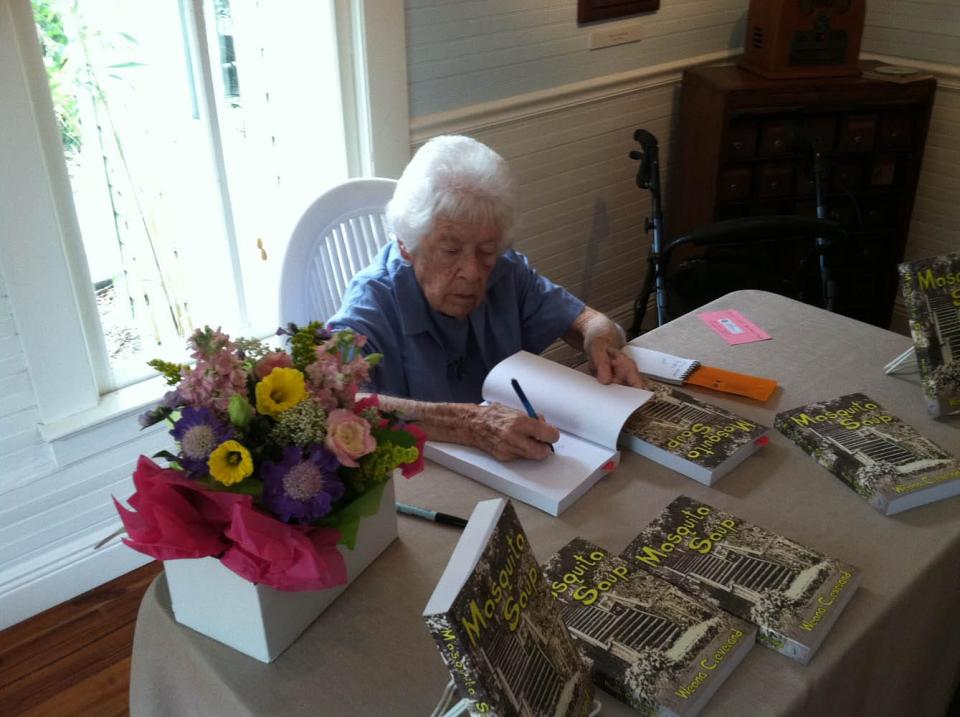
More: Mystery boat washes ashore in Satellite Beach; Coast Guard unaware of its origins
More: Groundbreaking held for 6-story Element by Westin resort hotel next door to Crowne Plaza
Cleveland — who was bestowed the title of Brevard's honorary county historian — died Oct. 6 at age 97. The retired Melbourne Times and FLORIDA TODAY reporter and columnist chronicled Space Coast history in newspaper pages for decades.
Hundreds of historical topics abounded in Cleveland's "Spotlight on History" columns. She specialized in stories detailing South Brevard's post-Civil War settlement, when newcomers arrived in oxcarts, boats, mule-drawn wagons, tin lizzies, and Henry Flagler's railroad to carve communities out of the surrounding wilds.
A colorful example: The account of a startled pedestrian who blundered across two bears near the beach in January 1900 in Oceanus (a long-defunct community just north of Patrick Space Force Base.)
A paperwork packrat, Cleveland researched and wrote the texts of many of the blue historical markers posted at landmarks throughout Melbourne and Eau Gallie.
"Weona Cleveland has done a great service for anyone interested in local history and culture, but particularly historians. For more than 40 years, she wrote articles about pioneer life in the area," said Ben Brotemarkle, executive director of the Florida Historical Society.
"She visited cemeteries and individual graves to find clues about the history of Merritt Island. She documented personal accounts of the 1919 fire that destroyed downtown Melbourne," Brotemarkle said.
"She drew comparisons between a tragic airplane wreck off of Melbourne Beach in 1928 and the Challenger disaster 58 years later. She wrote about a lot of local African American history that no one else recorded," he said.
"Weona was a local treasure and will be missed," he said.
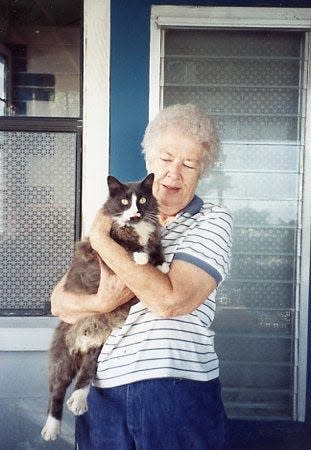
Cleveland was born in 1925, and as a child she lived in the small country town of Moreland, Georgia. After moving to Brevard in 1961, she started working as a journalist for the Melbourne Times weekly newspaper and FLORIDA TODAY during the early 1970s.
After retiring in 1987, she continued to write her popular FLORIDA TODAY "Spotlight on History" column for the next 20 years. She also conducted historical walking tours in downtown Melbourne and Eau Gallie.
Some of Cleveland's best columns are preserved in a trio of Brevard history books:
A collection of her newspaper stories was released in the book "Melbourne — A Century of Memories" in 1980 by the Melbourne Area Chamber of Commerce Centennial Committee.
In 1994, Gannett published a collection of her stories in the book "Crossroad Towns Remembered: A Look Back at Brevard and Indian River Pioneer Communities" to mark the 100th anniversary of the Melbourne Times.
The Florida Historical Society Press published some of Cleveland’s best newspaper articles in the 2013 book "Mosquito Soup," which spanned 375 pages.
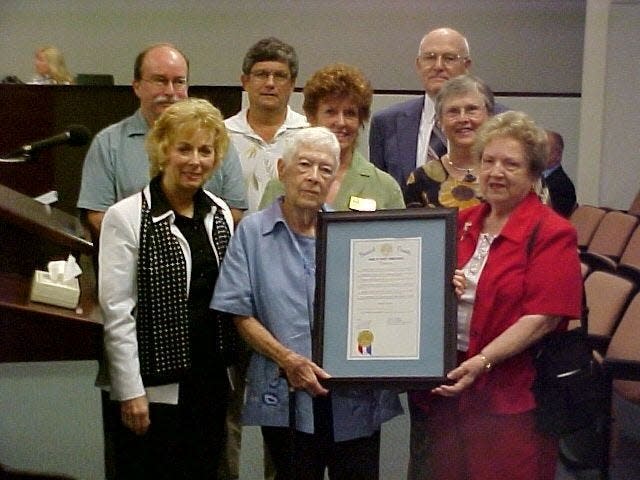
Cleveland also wrote articles for the Indian River Journal, a periodical published by the Brevard County Historical Commission. Her photo collection is preserved in the historical commission's archives.
In May 2006, the Brevard County Commission unanimously appointed Cleveland as honorary county historian.
Then in January 2009, Cleveland received the Julius Montgomery Pioneer Award from the Florida Institute of Technology in honor of her work documenting Black history in Brevard.
Ruthie Coverston, Cleveland's niece, lives in Deltona. She said Cleveland lived in the same Melbourne house since the 1960s, and she had an independent streak.
“She loved to keep written records. She didn't have a TV. She tried the computer — but she didn't like the computer. She loved the newspaper, and I always was amazed at how well she kept up with events," Coverston said.
Cleveland was a member of the Conradina Chapter of the Florida Native Plant Society, and she loved tending her backyard garden. Coverston said her aunt also cared for up to eight or nine cats at a time.
“If if I tried to tell her something about her great-nephew, or a baby — or anything about anything — if I didn't know that who-what-where-when and why, she would get frustrated with me," Coverston recalled.
"She had the mind of a reporter," she said.
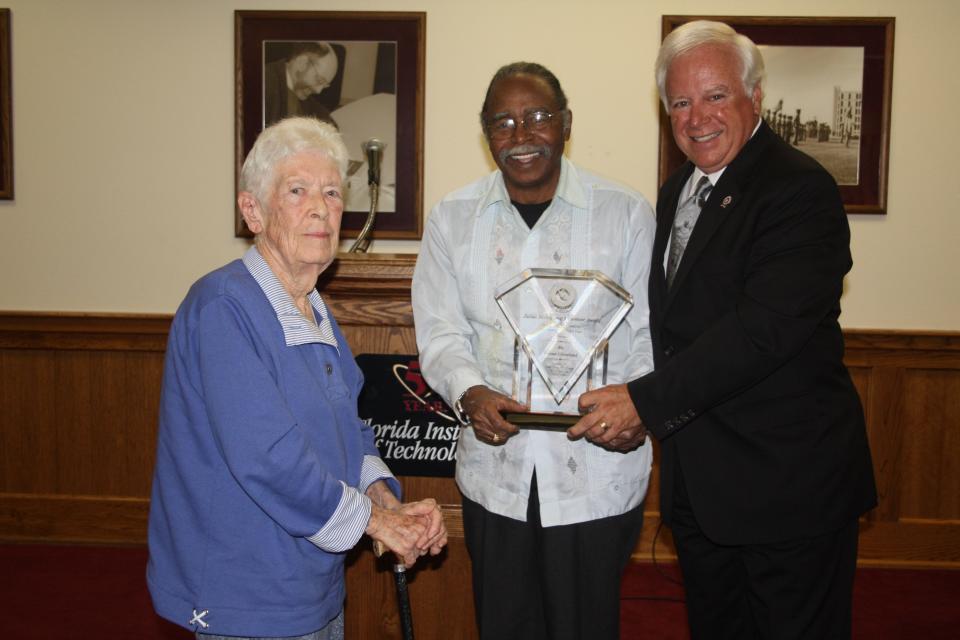
Ed Vosatka, a retired South Brevard Historical Society board member, recalled that he met Cleveland when she wrote a late-1970s Melbourne Times column about his interest in the long-defunct Union Cypress Sawmill in Hopkins, the predecessor community of south Melbourne.
Vosatka later guided Cleveland on a 1986 boat expedition of the upper St. Johns River. Her subsequent FLORIDA TODAY story detailed the surviving wooden pilings of the old Kissimmee Highway, the remains of a 1928 railroad trestle leading to Deer Park, and a water moccasin curled atop the wreckage of a World War II-era plane in Three Forks Run.
Vosatka and his wife, Diane, served as Cleveland's "primary drivers" at least the past 10 years, helping her run errands and care for her cats and home.
“She was generous with animal charities. She had a number of charities. I was taking in her mail, and it was just loaded with every animal charity you could name," Diane Vosatka said.
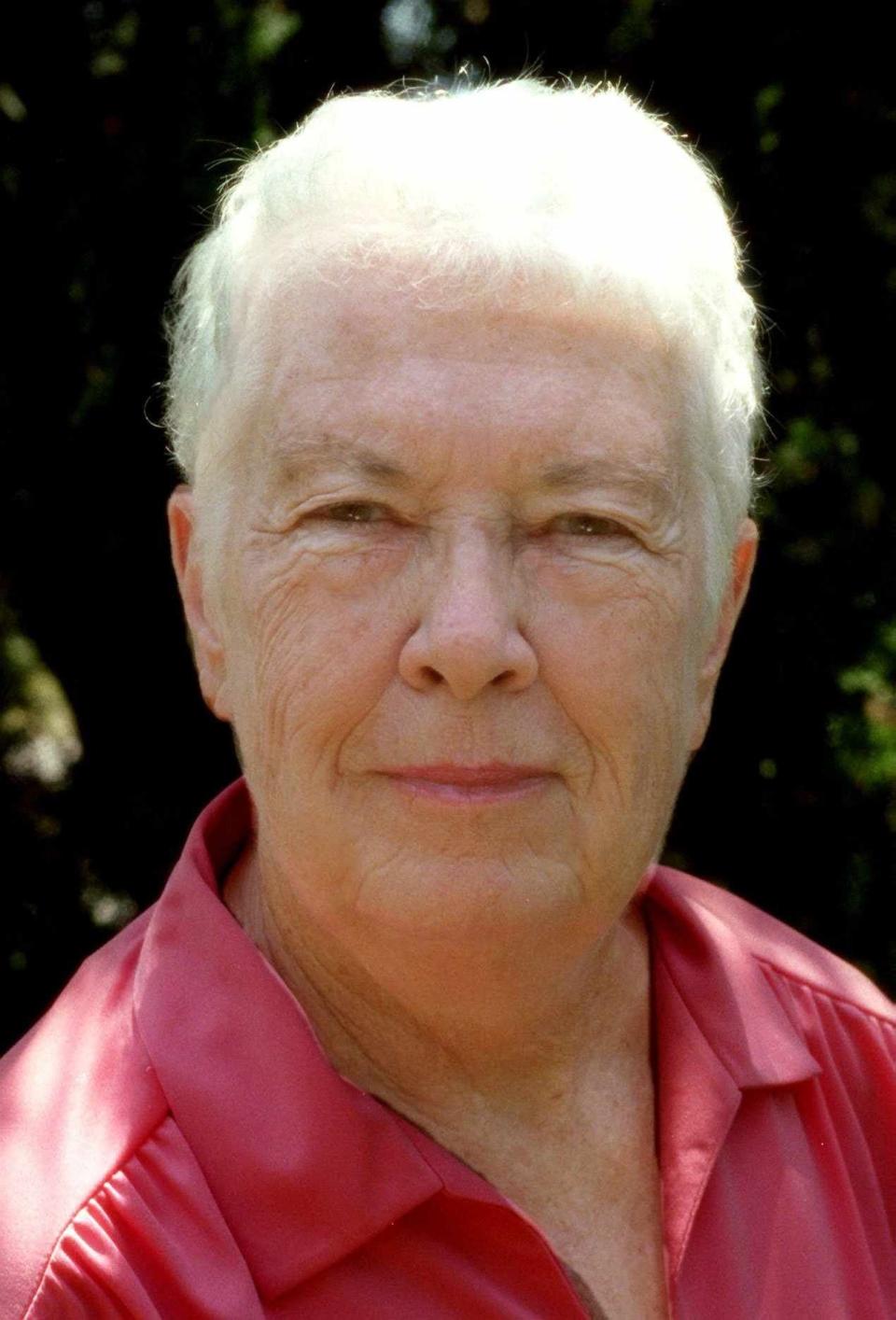
Cleveland died of old age at a Melbourne skilled-nursing facility, Coverston said. She is survived by her daughter, Roberta “Bonnie” Fielding of Texas, and several grandchildren. No memorial service is planned.
“She told me that she didn't want a service. And I said, ‘What about the people that want to remember you?’ " Coverston said.
"And she said, ‘Well, I'd like to be remembered. That's nice,' " Coverston said.
"But she said, ‘If anybody asks you, just tell them to take a walk in their favorite garden, or on the beach, and remember me — and that'll make me happy.' "
Chronicling the Space Coast's past
In the introduction to her 1994 book "Crossroad Towns Remembered: A Look Back at Brevard and Indian River Pioneer Communities," Weona Cleveland noted that the Space Coast could have easily been called the Citrus Coast, Farm Coast, Fishing Coast or Cattle Coast — had fate taken a different twist.
“So for those of you who are relative newcomers to Brevard’s shores, I would like to share some of my past newspaper stories of the towns and settlers as they were decades ago — long before anyone searched the skies for contrails of a missile or listed for the rumble of a shuttle launch,” Cleveland wrote.
“For those of you who shared your memories in order to create these stories, I thank you. I hope you, too, will treasure the past," she wrote.
"Through you, we are able to glimpse a mosaic of a more placid, slower-paced time in Brevard and Indian River counties, when eyes searched the skies for eagles and pelicans and the only rumble was the sound of a steamboat whistle or the horn of a steam engine on the Florida East Coast Railway.”
Rick Neale is the South Brevard Watchdog Reporter at FLORIDA TODAY (for more of his stories, click here.) Contact Neale at 321-242-3638 or rneale@floridatoday.com. Twitter: @RickNeale1
Support local journalism. Subscribe today.
This article originally appeared on Florida Today: FLORIDA TODAY columnist, Brevard historian Weona Cleveland dies at 97

